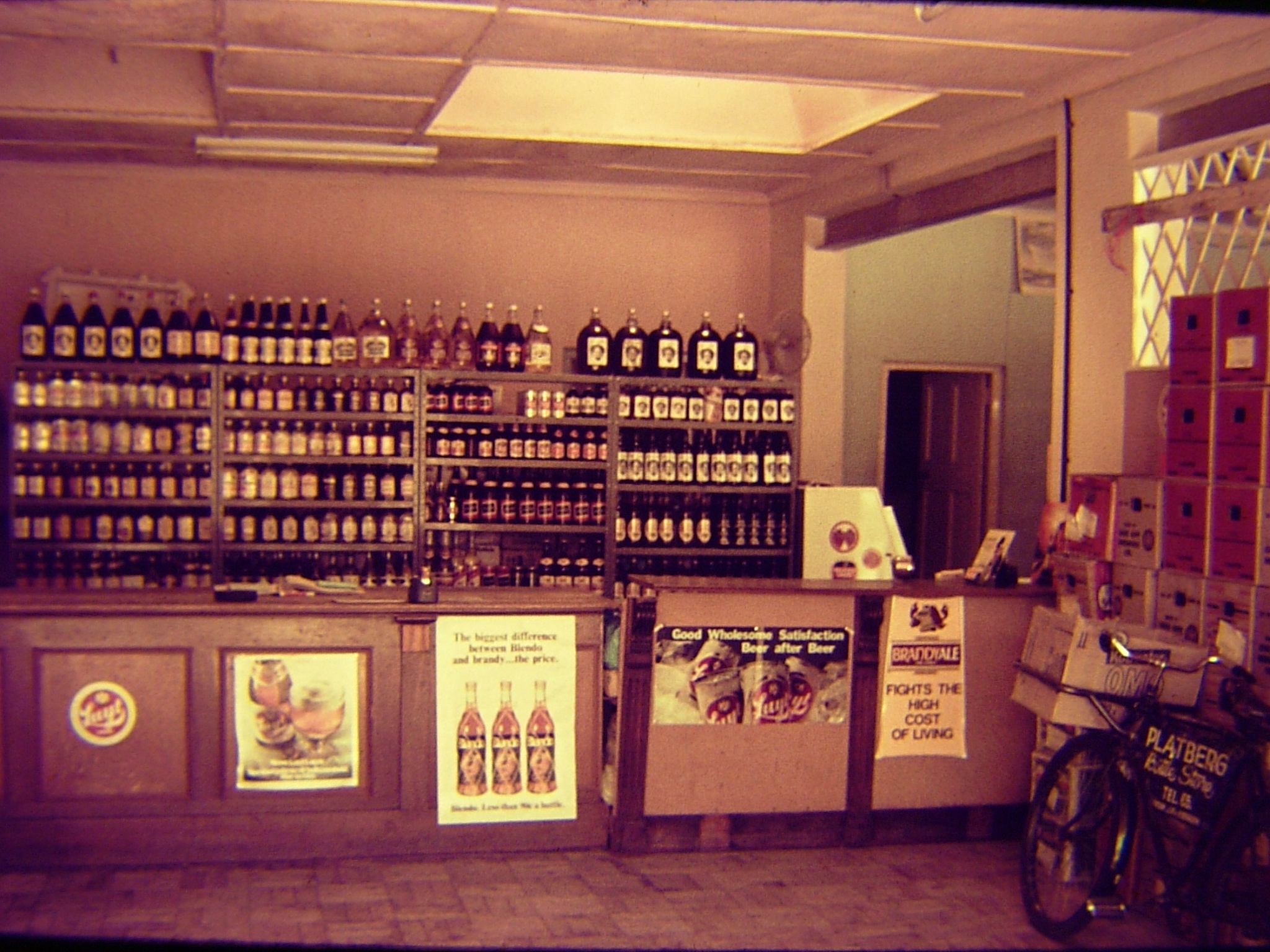Didn’t steal much as a kid. But I did slug down a bottle of Monis red grapejuice on the quiet in the back storeroom of the Platberg Bottle Store / Drankwinkel working for Mom & Dad one Saturday morning. You can see the door to the storeroom in the pic. Warm, straight out of one of those cardboard boxes all the bottles were packed in.

That afternoon we went for a long drive out Witsieshoek way in the beige 1956 Morris Isis (no, not Islamic State of Iraq & Syria, just Isis, after the river in England that most call the Thames).
After a while the car door had to be flung open for me to have a hearty grapey chunder out onto the gravel road in the veld. It would have looked like blood, so I imagine a confession then also would have had to take place. Can’t remember.
I haven’t liked red grape juice since. Communion in the teetotal Methodist church had me being possibly the only sinner rudely reminded of theft and puke every time the shed for you came round. Divine retribution? Communion? Confession? He does seem to move in mysterious ways!
Here’s the cave on the Witsieshoek road:

~~~oo0oo~~~
As an aside –

The Morris Isis was named after the River Isis – which is actually just the Thames in Oxford, you know how Poms are with names. The Morris Isis was “designed for work in the Dominions, Colonies and Protectorates” . . . “the factory’s output . . . is entirely for export. Great attention was given to providing a low appearance without sacrifice of ground clearance. The all-metal 5-seater saloon body is stated to be practically indestructible and climate-proof.”
The 1956 version had the fascinatingly bizarre feature that both the gear lever and the handbrake were on the floor to the right of the driver, wedged in the narrow space between the seat and the driver’s door. When changing gear it looked like you were fiddling for something you’d dropped between your right thigh and the door.

The Morris Isis Series II was based on the Morris Oxford Series III. The engine power increased to 90 bhp. The manual version had a four-speed box operated by a short gearstick located on the right-hand side of the front bench seat. The handbrake lever was located just behind the gearstick.
Sales remained weak, and the line ended in 1958. It had a top speed of 90 mph and could accelerate from 0-60 mph in 17.6 seconds. Fuel consumption of 26.2 miles per imperial gallon (10.8 litres/100 km) was recorded. The test car cost UK£1025 including taxes.


~~oo0oo~~
Pingback: Lockdown Lookback – Bewilderbeast Droppings
Pingback: Drunken Revelry – Vrystaat Confessions
Pingback: Messing about in Boats | Vrystaat Confessions